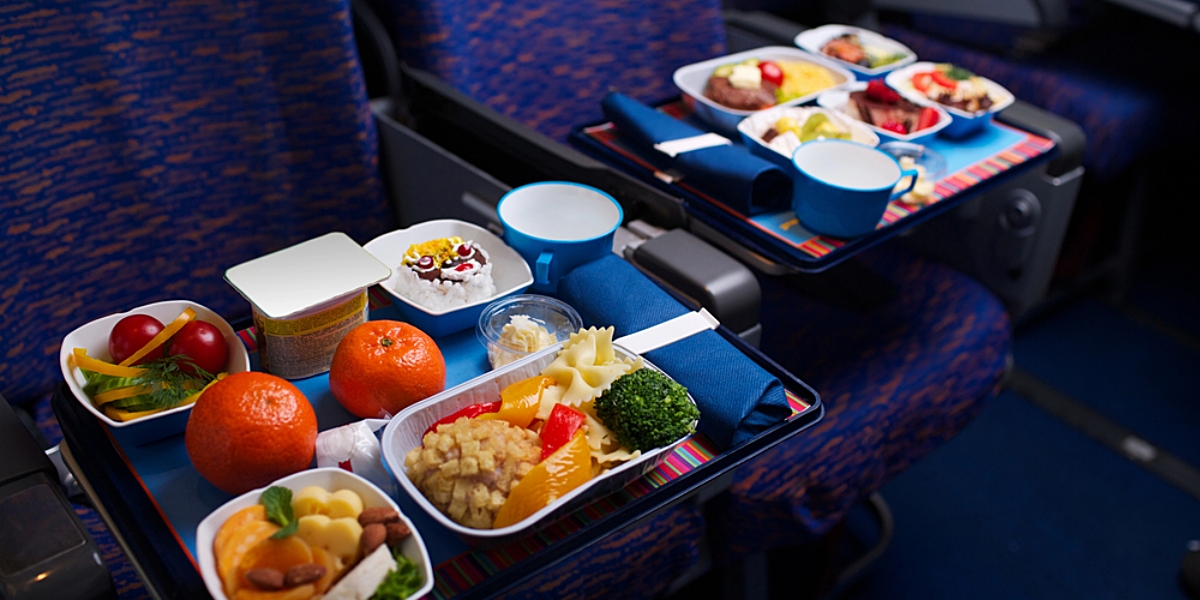Playlist of Poetic and Touching Songs for the Word of Affirmation Community
In crafting lyrics, musicians have their own distinctive styles to create the desired atmosphere. One example is poetic-style music.

Kapanlagi.com - Who would have thought, the food served on airplanes can taste bland not only because of the ingredients but also due to some interesting scientific factors. When you fly at high altitudes, your sense of taste and smell experience a significant decline.
Additionally, the low air pressure and humidity at airplane altitudes affect appetite. Research shows that sweet and salty tastes can decrease by up to 30% while flying. Airlines have to make extra efforts to keep their food delicious by adding more salt and sugar.
Not to mention, the cabin noise produced by the airplane engines can interfere with our ability to taste. This loud noise is not only distracting but can also make us eat faster and enjoy the served food less. Furthermore, check out the complete review below!
At high altitudes, air pressure and humidity are much lower compared to the ground level. This significantly affects our sense of taste and smell. Low humidity can cause dryness in the nose and mouth, reducing sensitivity to sweet and salty flavors.
The loud sound of the airplane engines also plays a role in taste perception. Noise can interfere with a person's ability to taste and identify flavors, especially sweet and salty. This makes the dining experience on the plane feel less enjoyable.
Food on airplanes is often frozen and stored for long periods before being reheated. This process can diminish the quality of the food's taste and aroma. Reheated food often loses its original flavor.
The dry air in the airplane cabin also affects the human sense of smell. Taste is a combination of the senses of taste and smell. If the sense of smell is less sensitive, then the perception of the taste of food will also decrease.
The uncomfortable environment of the airplane, such as cramped seats and lack of space to move, can affect appetite. This discomfort makes it difficult for some people to fully enjoy the food served.
Some airlines are now making efforts to serve food with better taste. They pay attention to the factors that influence taste and strive to improve the quality of the food served.
Even so, there are several tips you can apply to tackle the problem of bland food on airplanes. First, use noise-cancelling earphones to reduce distracting cabin noise. A study from Cornell University shows that noise can interfere with taste perception.
Additionally, drinking enough water during the flight is also very important. Hydrating your body can help enhance the sensitivity of your taste buds. This is a simple yet effective step to improve your dining experience on the plane.
By understanding the factors that affect the taste of food on airplanes, you can be better prepared to face the meals served. So, next time you fly, don’t hesitate to try these tips to make your dining experience more enjoyable!
Drinking enough water during the flight is also very important. Hydrating your body can help enhance our taste sensitivity. This is a simple yet effective step to improve your dining experience on the plane.
By understanding the factors that affect the taste of food on airplanes, we can be better prepared to face the meals served. So, next time you fly, don’t hesitate to try these tips to make your dining experience more enjoyable!
(kpl/tmi)
Cobain For You Page (FYP) Yang kamu suka ada di sini,
lihat isinya
In crafting lyrics, musicians have their own distinctive styles to create the desired atmosphere. One example is poetic-style music.
Long school hours negatively affect children's physical, mental, and social health. What are the risks?
Discover attractive and elegant house terrace paint color inspirations to create a cozy atmosphere.
Well, to welcome Kartini Day, which is celebrated every April 21, let's rewatch the following list of films!
Astrology provides hope, self-understanding, and coping mechanisms for many people amidst uncertainty.
What is the real fact about hot inner conditions? Is it really a disease or just a symptom of another health condition? Let's uncover it here!
The Forbidden City in China holds an intriguing history of power and restricted access for common people.
Discover the characteristics of a manly guy that make him the ideal choice for many women and how his demeanor can attract attention.
Discover the long journey of hair curling tools from ancient times to modern advanced technology.
Delving into the meaning behind favorite colors and their influence on each person's personality.
Discover several tourist attractions in Jakarta that combine entertainment and education for an unforgettable holiday experience.
From The Devil Wears Prada to Cruella, here’s a list of Hollywood fashion-themed movies that are not only stylish but also have exciting stories. Check out the recommendations here!